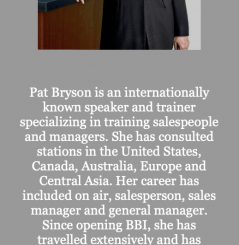The FCC issued its first two Notices of Apparent Liability for Forfeiture against pirate operators since the passage of the PIRATE Act in 2020.
César Ayora and Luis Angel Ayora of Queens NY have been issued the maximum penalty possible of $2,316,034 for operating “Radio Impacto 2” on 91.9 and then 105.5. Luis Angel Ayora was previously issued a $20,000 fine in 2015 which he did not pay. In 2016, U.S. Marshals executed a warrant and seized their equipment, but they soon resumed operations with the FCC Enforcement Bureau noting regular operations including advertising the station for at least 25 weeks and continuing to operate to this day. The station’s website even noted that the brothers founded the first Ecuadorian FM radio station in New York City in 2008 and the site tied César to the operation whereas previously the FCC only thought Luis Angel Ayora operated the station.
https://www.facebook.com/impacto2fm/posts/pfbid0wLhp4FCafAP67x8kd54xkmoWfDcYPESGid7BVfqY3FBNC95rDcHiS8GYDjqyKtfjl?__cft__[0]=AZUQWXpMX8V3mIG7nX4Gqmwa7_AeX57bos-IHF_YzY0N-9PsyLBofifU5DQaELILmQjl8u1Q8rcK2TTUfFYfETGms2IYsLoTPJ820VwmIKn6K6BvgN0ZfIZBABFMkfWEwGl-DM8vfZB9OQLsVlIkBtM3Kcjv905OF0rgqtbVLsDEIlBs99G8s1N2rDiWy4K1anI&__tn__=%2CO%2CP-R
Thomas Barnes has had an $80,000 forfeiture proposed against him for operating “Pirate Radio Eastern Oregon” on 92.3 and then 100.5 in La Grande OR. After multiple warnings from the FCC, Barnes finally ceased operation in April 2022 after the owner of the RV park where his transmitter was located was notified of the their potential liability under the PIRATE Act with the FCC using videos Barnes posted as the ‘Eastern Oregon Radio Pirate’ in their investigation.
The FCC has also issued new Notices of Illegal Pirate Radio Broadcasting to Marisia Maocha for a station operating on her property on 90.7 in Brockton MA and to Randy Lee Jones and Dorothy Jones for a station operating on their property on 92.7 in Sweet Home OR.
The Federal Communications Commission today announced its first proposed fines under the Preventing Illegal Radio Abuse Through Enforcement Act (PIRATE Act) against three pirate radio operators. First, the Commission proposed the maximum penalty allowable, $2,316,034, against César Ayora and Luis Angel Ayora for pirate radio broadcasting in Queens, New York. Second, the Commission proposed an $80,000 forfeiture against Thomas Barnes for pirate radio broadcasting in La Grande, Oregon.
Pirate radio broadcasting is the unauthorized transmission of radio frequency signals on the frequencies in or adjacent to the FM and AM radio bands. Pirate radio results in a number of harms, including causing harmful interference to licensed radio stations which transmit public safety emergency alert messages. Operating an unauthorized, or pirate, radio station is illegal under the Communications Act of 1934. To enhance enforcement capabilities, Congress enacted the PIRATE Act in January 2020.
The PIRATE Act provides the FCC with additional enforcement authority, including higher penalties against pirate radio broadcasters of up to $100,000 per day with a maximum of $2 million (now $115,802 and $2,316,034, respectively, adjusted for inflation). In addition to tougher fines on violators, the law requires the FCC to conduct periodic enforcement sweeps and grants the Commission authority to take enforcement action against landlords and property owners that willfully and knowingly permit pirate radio broadcasting on their properties.
First, the Commission proposed the maximum penalty allowable under the PIRATE Act, $2,316,034, against César Ayora and Luis Angel Ayora for operating a pirate radio station known as “Radio Impacto 2” in Queens, NY. The Commission previously issued Luis Angel Ayora a $20,000 forfeiture in 2015, which he did not pay. In 2016, the U.S. Marshals Service executed a warrant in rem and seized the Ayoras’ broadcasting equipment. As part of their PIRATE Act investigation, FCC Enforcement Bureau Agents found scores of apparent violations between March and September 2022, including multiple weekly on-air radio programs. The Ayoras even advertised their pirate radio station for no less than 25 weeks, and continue to operate their unauthorized station to date.
Second, the Commission proposed an $80,000 forfeiture against Thomas Barnes for operating a pirate radio station known as “Pirate Radio Eastern Oregon” in La Grande, Oregon. Barnes received multiple warnings notifying him that operating a pirate radio station is a violation of the Communications Act, but nonetheless he continued to engage in unauthorized radio broadcasting. However, Barnes ceased operation on or before April 15, 2022, after the Bureau notified his landlord of the landlord’s potential liability under the PIRATE Act if pirate radio operations were to continue on the property.
The proposed actions, both formally called a Notice of Apparent Liability for Forfeiture, or NAL, serve to advise the parties on how they have apparently violated the law and set forth proposed monetary penalties. In any subsequent ruling in these matters, the Commission may not impose a monetary penalty greater than the amount proposed in each NAL. Moreover, the NALs are not final Commission actions, because, under the law, the party to be charged is afforded an opportunity to respond. If it does so, the Commission may consider the party’s submission of additional evidence and arguments before acting further to resolve the matter.
FCC Actions
The FCC is issuing an Order to Pay or to Show Cause initiating a license revocation proceeding against Bravo Broadcasting Company’s Spanish Christian 1580 KIRT Mission TX for failure to pay delinquent regulatory fees and associated interest, administrative costs, and penalties owed. The agency notes that KIRT owes a total of $36,165.23 for unpaid regulatory fees from 2012 and 2015 through 2022. The station is ordered to pay the overdue regulatory fees, including any associated interest, penalties, and administrative costs, or show cause why the payment demanded is inapplicable or should otherwise be waived or deferred within 60 days.
License Cancellations
After taking 880 KCMX Medford OR silent in January following transmitter failure, Stephens Media Group has turned in the license of the station. The station’s News/Talk format continues on 99.5 K258DB/105.1 KAKT-HD3 Phoenix OR.
Somar Communications has turned in the license of 1560 WKIK La Plata MD. WKIK was last noted as simulcasting co-owned Country 102.9 WKIK-FM California.
After failing to respond to FCC inquiries noting that 88.9 KOPE and 89.7 KWTR El Dorado TX have been off the air since February 2021, the FCC has cancelled the pair of The Center for Education Nonprofit Corp. owned licenses.
Silent Notifications
Family Worship Center Church’s 97.7 KJSM-FM Augusta AR (Transmitter issues)
Western Slope Communications’ 690 KRGS Rifle CO (Transmitter failure)
Educational Media Foundation’s 107.9 WPFM Panama City FL (Burned coax)
Hawaii Public Radio’s 89.9 KIPL Lihue HI (Transmitter failure/site vandalism)
Langer Broadcasting Group’s 650 WSRO Ashland MA (Death of owner)
Langer Broadcasting Group’s 1410 WZBR Dedham MA (Death of owner)
North Texas Radio Group’s 1580 KTLU Rusk TX (Loss of lease of tower site)
Moab Public Radio’s 90.1 KZMU Moab UT (Transmitter failure)
VCY America’s 104.1 WVIW Bridgeport WV (Transmitter issues)
AM Changes
Townsquare Media’s Hip Hop “Power 105.5” 630 KFXD Boise ID […]






